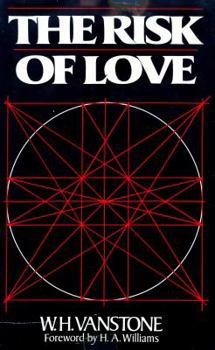The Risk of Love
Select Format
Select Condition 
Book Overview
"Theological truth is the truth of God's relationship with man and it is the fruit not of learning but of experience. In this sense all theology, properly so called, is written in blood. It is an... This description may be from another edition of this product.
Format:Hardcover
Language:English
ISBN:0195200535
ISBN13:9780195200539
Release Date:May 1978
Publisher:Oxford University Press, USA
Length:120 Pages
Weight:0.68 lbs.
Related Subjects
Christian Books & Bibles Christian Living Religion Religion & Spirituality TheologyCustomer Reviews
1 rating
Self-Limiting God of Love in Relationship with Us
Published by Thriftbooks.com User , 20 years ago
In his struggles to understand the role of the church and what God requires, the author looks to a robust notion of love, including understanding the nature of God in a way that is amenable to the structure of love. The work in the initial segments is largely autobiographical as the author identifies his own journey to the theology of love that he eventually proposes. In attempting to understand the purpose of the church, Vanstone wrestles with what it might mean for the church to glorify God. He comes to believe that God can be glorified only if God is truly interested in the work of the church. It is the importance of the church's work and his awareness of material reality that leads Vanstone to suppose that the whole of creation is a work of love. After rejecting the idea that divine love is wholly dissimilar to creaturely love, the author argues that we must extrapolate from the authentic love that we see around us in the creaturely world. In his analysis of the phenomenology of love, Vanstone discovers three signs of authentic love. The first is that authentic love has no limitation, in the sense that it does not choose to love some people and hate others. This does not mean that love is not constrained by circumstances, however. The authenticity of unlimited love involves the totality of giving of oneself to the other. The second mark of authentic love is the giving up of control. Love becomes distorted when it attempts to possess or manipulate the other. This means that love is risky, for it cannot control the other and often fails in its attempt to benefit the other. The third mark of authentic love is that the other affects it. The love gives to the object a certain power over the one loving. The one loved affects the one loving. This means that lovers are vulnerable. Upon examining a phenomenology of creaturely love, Vanstone turns to address divine love. He attributes to God a love that is limitless, vulnerable, and precarious. He appeals to the idea of kenosis, in the sense that God is self-giving in expression of love for creatures. The activity of God's love in creation is precarious, by which Vanstone means that it must not "proceed by an assured programme" (62). The precariousness of divine love is especially evident in the fact that evil exists. The fact that evil occurs implies that there is an other that is not divine; it does not imply that evil is willed by the creator. Vanstone argues that the God who foreordains and predetermines cannot be a God who loves. "If the creation is the work of love, its `security' lies not in its conformity to some predetermined plan, but in the unsparing love that will not abandon a single fragment of it, and man's assurance must be the assurance not that all that happens is determined by God's plan, but that all that happens is encompassed by His love" (66). When addressing the vulnerability of divine love, Vanstone contends that divine loving activity can result in e





